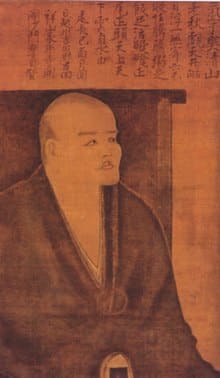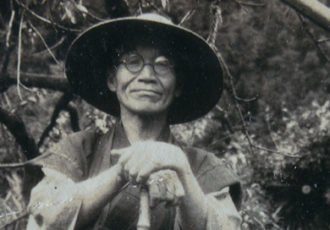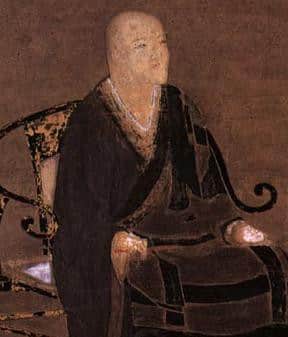Dogen was a prolific writer who captured his knowledge and experience of Zen Buddhism in a large body of texts. Shobogenzo (“Treasury of the Right Dharma Eye”), a spiritual masterpiece, contains a series of discourses that he gave to his students on a variety of subjects. “Uji” is a complex chapter discussing the nature of time and being (existence), which in Dogen’s conception are inseparable.
“Uji” was written at the beginning of winter, the first year of Ninji (1240), while Dogen was teaching at the Kosho-ji, south of Kyoto. It is one of the central fascicles of Shobogenzo, and one of the most difficult. In this chapter, Dogen investigates the concept of time. Although the subject of time is one not generally encountered in Zen literature, is Dogen’s central theme, and it is present as an underlying theme in the other major fascicles as well.
“Uji” literally translates to “Being-Time.” In the original Chinese text, the character “u-ji” – repeated at the beginning of each line of quotation – means aru toki, “at certain times,” “sometimes.” For Dogen, “uji” means that time itself is being (existence) and each being is a time. In “Uji,” Dogen introduces several other key notions, such as jiji (time’s occurrence at each, every and any moment), kyoryaku (passage, encompassing the simultaneity of past, present, and future), nikon or shikin (right-now) and ju-hoi (dharma dwelling-place).
For Dogen, all manifestations depend on time and are expressions of time. In one respect, “uji” can be considered as a unified time, which does not flow or pass in the normal sense of time flying away.
“Uji” presents time as being a flowing array of eternal moments, as a paradoxical awareness of time as “discontinuous continuity.” Dogen expresses this thought in these words: In other words, time flows from the present to the present. As Dogen states:
In this respect, “uji” does not have a “from-to” structure; time does not really flow from the past to the present. Rather, we could say that the all time flows from the present. Dogen expresses such an insight quite eloquently:
Time changes each moment without losing its continuity. Time is ‘time’ because it is continuous. “Uji” embraces both the discontinuous and the continuity of time simultaneously. “Uji” flows, not in the horizontal dimension of ordinary linear time, but in the vertical dimension. Flow in being-time does not amount to passage, or a passing away, but a deepening presence in an “expanded, trans-temporal present.” The notion of linear time as flying from the past, through the present, towards the future appears to be abstracted from concrete experiences of “being-time”. To think that time flies away is to separate ourselves from the time-as-experienced. Dogen asserts that time appears to fly away only if there is a gap between oneself and time.
The basic Western view of time derives from Aristotle’s thinking. He defined time as > Time thus has, by definition, measurements and is analogous to a line in space, as opposed to the now, which relates to time as a point relates to a line — it is in/on it, but not a part of it. Points cannot be next to each other because then they would have to have sides and measurements, contrary to their definition. Analogically, a moment appears to us in a different register of “being” than “time”. Moments are without duration, just as points are without measurements.
The Buddhist ontological standpoints is that actual, immediate existence takes place in the now rather than in a measurable time, which necessarily includes stretches of the already gone past and the not-yet-come future as well. Time, in Dōgen’s text, is one of such cluster-concepts that balances between the meanings of the momentary and the durational and does not just refer to the measurable dimension of time that is implied by Aristotle’s definition. On the contrary, in a certain terminological sense, the dominant of the concept tilts to the side of the momentary. The “moment,” although without dimensions, is not something atomistic or infinitesimally small; the “moment” does not have dimensions at all and is thus simultaneously unmeasurably brief and everlasting, always present.
For Dogen, time is not spatial, but dynamically present and unified, and is not irreversible. Dogen concludes that anything having existence is bound to time and actually is time itself. “Uji” means that time is existence and that all existence is time. The “existential moment” means that each moment is in itself an existence and that all existences are momentary.
“The I unfolds and becomes the world in its entirety, and one should see that all beings, all things constitute moments in this entirety of the world. Just as different things do not interfere with each other, different moments do not interfere with each other either. Thisis why the mind arises in the same moment, the moment arises in the same mind. And itis the same with the practice and attaining the way. When the I unfolds, it sees itself as“me.” The principle that the self is momentary works in the same way.”
Photo credit: thedaliuniverse




